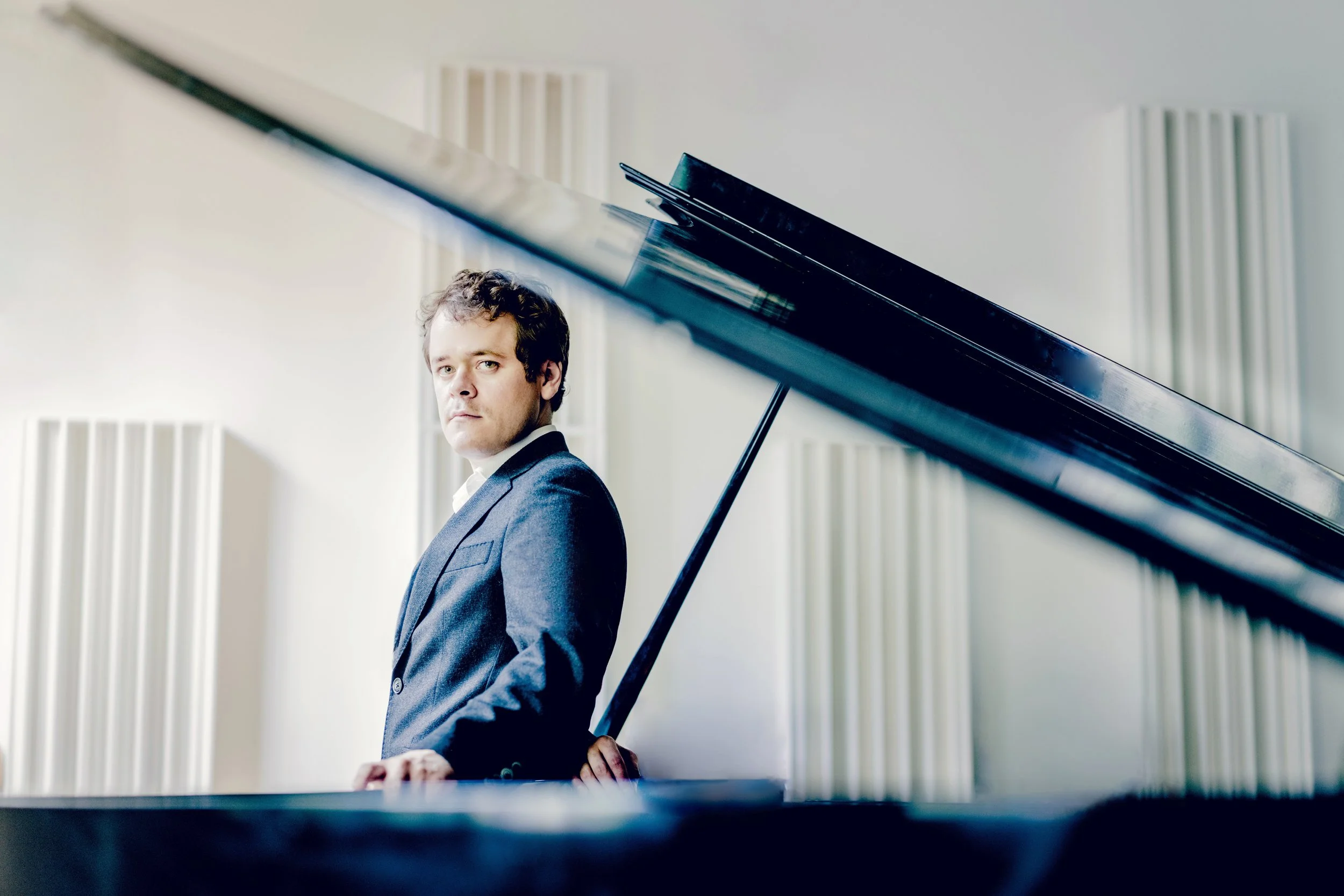London Philharmonic Orchestra. Royal Concert Hall, Nottingham. 28 January 2025, 5☆☆☆☆☆. Review: William Ruff.
Photo Credit: Andrej Grilc.
London Philharmonic Orchestra. Royal Concert Hall, Nottingham. 28 January 2025,
5☆☆☆☆☆. Review: William Ruff
“Outstanding music-making from orchestra, conductor and soloist.”
Mozart isn’t Rachmaninov. Apologies for stating the obvious but playing Mozart doesn’t involve hurling fistfuls of notes at the audience and defying the laws of nature when it comes to what fingers can do. So no wow factor in Mozart…perhaps?
However, Benjamin Grosvenor was the soloist in Mozart’s Piano Concerto No 21 in this LPO concert and it was an electrifying experience. His virtuosity lay in breathing new life into such familiar music, shaping each phrase perfectly and taking nothing for granted.
The opening movement makes startling use of the horns, trumpets and timpani, and you knew from the opening bars of this performance that there was going to be rather more than just a spring in its step. This was more like a military march, so the contrast with later, more lyrical ideas couldn’t have been greater. However, the reason this concerto is so popular is its slow movement, its famous Andante an invitation to escape into an ideally beautiful world in which romantic melody pours out, much like an operatic aria – except in this case the piano can do things that are well beyond the human voice. Benjamin Grosvenor made the notes luminous, floating them above the gently throbbing orchestral accompaniment. After that the finale was full of witty dialogue between soloist and orchestra, almost like games of catch where timing is everything.
This concert opened with an early work by Sibelius: En Saga. Its title suggests a story embedded in the music, something with dragons and heroes set amid the pine forests of the north. However, Sibelius insisted that there was no story – apart from his turbulent state of mind when he wrote it. It’s all wonderfully craggy and atmospheric, evoking the wild beauty of Finland in every bar and deeply stamped with its composer’s musical personality. No one except Sibelius could assemble chips of melodic granite as he could and then assemble them into such stirringly heroic tunes. It begins with shimmering rays of northern light from which emerges an epic, deeply stirring main theme which makes you want to grab your sword and ride off in search of gold hoards and the fiery beasts guarding them.
Conductor Andrey Boreyko (standing in at short notice) clearly has this music in his veins, realising that the music can only work its magic through minute attention to detail. The LPO’s brass section had real bite and there were some lovely wind solos. The whole performance was articulate and thrusting with huge, thrilling climaxes and a deeply moving conclusion where the principal clarinet (Benjamin Mellefont) presented the main theme in its simplest and most poignant guise, steering En Saga towards its tranquil close.
The final work was Tchaikovsky’s fiery 4th Symphony, a deeply personal work written at the same time as the composer’s disaster marriage and subsequent nervous breakdown. Its opening fanfare suggests Fate, that inexorable force which plays with humans and thwarts their happiness (at least according to Tchaikovsky). Andrey Boreyko’s conducting reminded us that the composer was at heart a man of the stage and in this performance it was the Tchaikovsky of the great ballets and many operas that was to the fore. Boreyko’s timing was uncanny and depended on an almost telepathic response from the LPO where the symphony’s many micro-pauses were as telling as its mighty climaxes. Yes, it was emotional but every detail was so finely etched that heads were as engaged as hearts. The brilliant pizzicato scherzo was beautifully coloured and even the manic finale was kept in tight focus. The LPO’s wind and brass sections excelled themselves but Andrey Boreyko was right to direct the audience’s loud cheers and applause towards the entire LPO, an orchestra at the top of its game.
London Philharmonic Orchestra. Andrey Boreyko (conductor), Benjamin Grosvenor (piano).
